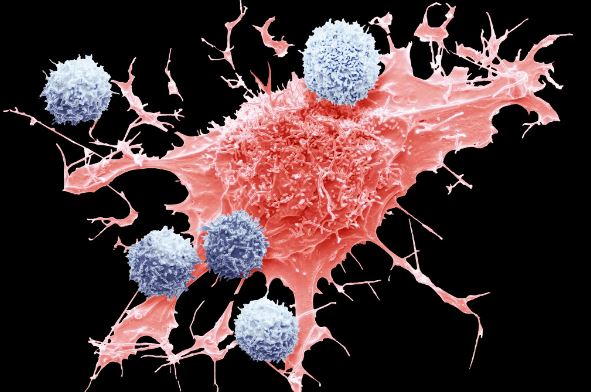The Food and Drug Administration (FDA) has issued a report on Tuesday highlighting a potential risk associated with a cancer treatment known as CAR-T, stating that the therapy itself may lead to the development of new cancers. CAR-T, which stands for chimeric antigen receptor T-cell therapy, was initially approved in November 2017 for treating life-threatening blood cancers. However, the FDA has received 19 reports of patients who underwent CAR-T treatment subsequently developing new blood cancers.
CAR-T therapy involves extracting a specific type of white blood cell, known as T cells, from a patient’s blood. These T cells are then genetically modified to produce chimeric antigen receptors (CAR), enabling them to attach to cancer cells and destroy them.
Despite the reported cases of new blood cancers associated with CAR-T therapy, the FDA has approved six commercial CAR-T products. Cancer specialists emphasize that these treatments have proven to be life-saving for thousands of patients with blood cancers. Even if there is a potential link between the therapy and a slight risk of developing new blood cancers, the benefits of CAR-T treatment outweigh the risks, according to regulators.
Doctors actively involved in cancer treatment echo this sentiment, noting that while the hypothetical risk was acknowledged, there has been no observed evidence of it in patients. Dr. Marcela V. Maus, the director of cellular immunotherapy at Massachusetts General Hospital, emphasized that the benefits of CAR-T therapy, particularly in cases where patients would otherwise face imminent death, far outweigh any potential risks.
The FDA’s announcement highlighted that the reports of additional cancers included serious consequences such as hospitalizations and deaths. Additionally, the agency acknowledged that the process of producing CAR-T cells carries an inherent risk of causing cancers in recipients. When T cells are engineered to produce proteins that target cancer cells, a virus is used to insert new genes into the T cell DNA. This process has the potential to disrupt other genes, leading to the development of cancer.
However, experts also noted other potential explanations for the observed cases. CAR-T therapy is typically administered to patients who have undergone intense chemotherapy and often radiation as part of conventional treatments. These treatments themselves carry the risk of inducing new blood cancers. Even without prior chemotherapy or radiation, patients with blood cell cancers are inherently susceptible to developing additional blood cell cancers.
One significant unanswered question is whether the new cancers identified in patients treated with CAR-T therapy involved T cells carrying the added CAR proteins. This, however, does not conclusively prove that the gene insertion caused the cancers, but it raises concerns and warrants further investigation.
The FDA did not outline specific expected outcomes from its ongoing investigation but mentioned that it is evaluating the need for regulatory action. The agency’s focus remains on balancing the potential risks with the life-saving benefits provided by CAR-T therapy and ensuring patient safety in cancer treatments.

